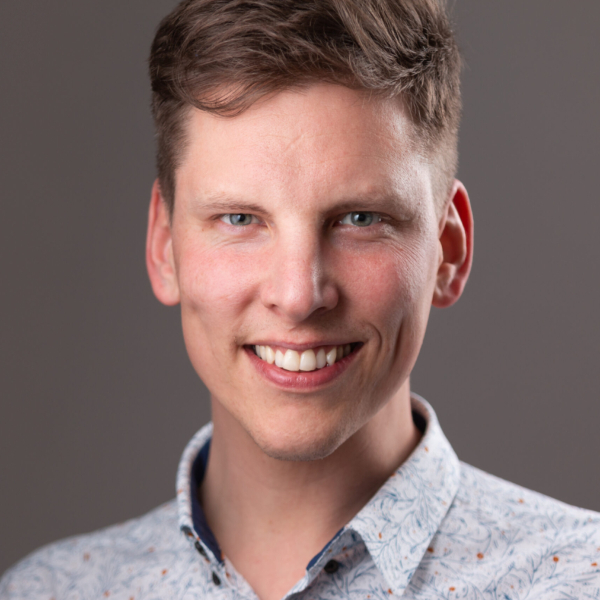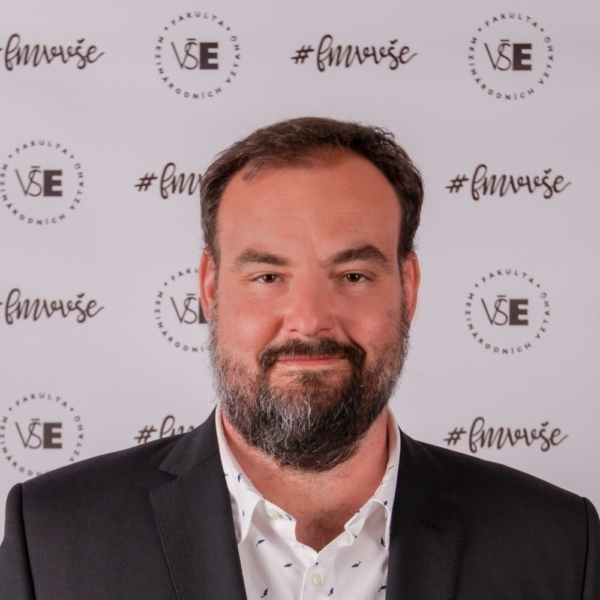FIR’s newly accredited programmes: Tourism and hospitality management (CZ)
In May 2023, two new study programmes were accredited at the Faculty of International Relations of the Prague University of Economics and Business, namely:
- Bachelor of Tourism and hospitality management (CZ)
- Masters in Tourism and hospitality management (CZ)
The newly accredited study programmes provide a response to current trends and requirements in this field. The programmes focus on the economic aspect of the field and the international character of tourism and hospitality in order to bring the study closer to the current needs of the practice.
The Bachelor’s programme in Tourism and hospitality management and the follow-up Master’s programme in Tourism and hospitality management replace the previous Tourism programme at both levels of study. Students starting in September will thus be able to look forward to completely new programmes.
Interview with the guarantor of the programmes
TOURISM AND HOSPITALITY MANAGEMENT
doc. Ing. Petr Janeček, Ph.D.
The main benefits of the new Tourism and hospitality management programme are based on major changes in content that reflect the current needs and demands of the industry. The programme is not just a rebranding but brings substantial innovations.
One of the main differences is the focus on developing transferable skills, critical thinking, excellent communication skills, management and leadership skills or project management. The emphasis is on equipment that enables one to manage well and agilely in the technologically complex environment of companies and organizations.
Sustainability is of course another key word characterizing the new programs.
The entire study is also focused on customer-centricity, a key element for the entire tourism and hospitality industry. Customer experience is an area that is absolutely crucial to our industry, and it is therefore important for us to include this in the curriculum.
An important element of the new programme is also the deeper expertise that is specific to the entire industry, whether it is hotels, wellness, destinations, tour operators or entities in the Meeting industry. Students will gain in-depth expertise in these areas, which are important for successful employment.
I want to emphasize that the change is not only in content, but also in approach. The new programme emphasises student-centricity and close links between the institution and practice. These are two fundamental values for us, and we are already working on them.
Prospects? Very promising and interesting. There is a growing demand for tourism and hospitality professionals, both regionally and globally. In addition, graduates with their equipment will be very well placed in corporate practice.
Current trends indicate that there is a growing need for professionals in the field of sustainable responsible tourism. Companies are increasingly focusing on environmental protection, ethical travel and social responsibility. Graduates with a comprehensive understanding of these topics will have an advantage when seeking employment.
Another growing area is digital transformation in tourism and hospitality. With the rise of technology and digitalisation, there is expected to be a demand for professionals who have skills in e-commerce, online marketing, data analytics and technological innovation. Graduates with such skills will have a competitive advantage in the job market.
The development of experiential travel and personalisation of services is also a key trend in the industry. Graduates who understand the principles of experience design, strategies for building customer loyalty and quality service will be sought after in this area.
Finally, the MICE industry, i.e. conventions, conferences, meetings and events, remains important for business and social events. Graduates specialising in the Mice industry will have the opportunity to apply their skills in the management and organisation of corporate meetings, conferences and events, not only from a tourism perspective but also from a mainstream corporate practice perspective.
The new programmes deliberately focus on current challenges. Sustainability is one of the main themes that cut across subjects and courses. Students will gain the skills needed to manage sustainable projects within the tourism and hospitality sectors.
Another key element is digital transformation, which is essential for the success of companies and organisations today. Students will have the opportunity to develop their skills in e-commerce, online marketing, digital content and technological innovation. They will gain the necessary knowledge to effectively use digital tools and technologies in various fields.
In addition, the new programmes will prepare students to handle crisis situations. They will learn strategies for crisis management, business continuity planning and crisis communication. They will gain the skills needed to respond quickly and effectively to unexpected events and situations that can affect the entire tourism and hospitality industry.
Overall, the new Tourism and hospitality management programs are designed to provide students with comprehensive preparation for today’s challenges in the tourism industry. Sustainability, digital transformation and crisis management are key elements of the program that weave through the educational process and prepare students for successful careers in a dynamic environment.
Practical knowledge and experience is very important for the programme, and we are well aware of this. Professionals from practice will participate in the teaching through invited lectures and talks. The most practical part of the programmes will be internships and practicum placements or collaborative semester projects or qualification papers commissioned by practitioners. New courses such as Projects in Tourism or Internships in Tourism and Hospitality will be developed for this purpose.
There is no doubt about the international character of tourism and hospitality. The same will be the case for our study programmes. Many lectures will be conducted in English and we would like to involve foreign partners. In the area of cooperation, we will also focus on developing joint projects with foreign universities focused on tourism or hospitality.
We expect students to be involved in research and project activities of the department. The department should be student-centered, so we count on students in these activities and we want to involve them as junior researchers in our projects and pass on our experience to them. Research topics are based on the staffing of the department, where topics such as destination management, destination branding, destination competitiveness, health tourism, hospitality management, but also soft skills of workers and managers in this sector, such as leadership or communication, crystallize.
The new programmes are suitable for those interested in dynamic and diverse work with people who are interested in a creative and innovative approach to tourism and hospitality. There are no specific prerequisites that applicants need to meet, but there are certain skills and qualities that can be an advantage for successful completion of the programme.
An important skill is the ability to communicate and interact with people, as working in tourism and hospitality often requires exposure to different cultures and personalities. Applicants should be open to new challenges and have a desire to learn and improve. Ability to work in a team. Agility and adaptability are key qualities in the industry.
The field of tourism and hospitality is open to a wide range of applicants and offers opportunities for development and employment for both young graduates and people who decide to change their career. It is important to have a passion for the industry, an interest in different cultures and the ability to adapt to different environments. The advantage of studying our new programmes is that the knowledge and skills acquired will be used by graduates in corporate practice and outside the tourism or hospitality industry.

doc. Ing. Josef Taušer, Ph.D.
Dean of Faculty of International Relations

doc. Ing. Petr Janeček, Ph.D.
Guarantor of programmes

Ing. Pavel Černý, Ph.D.
Head of the Department of Tourism

